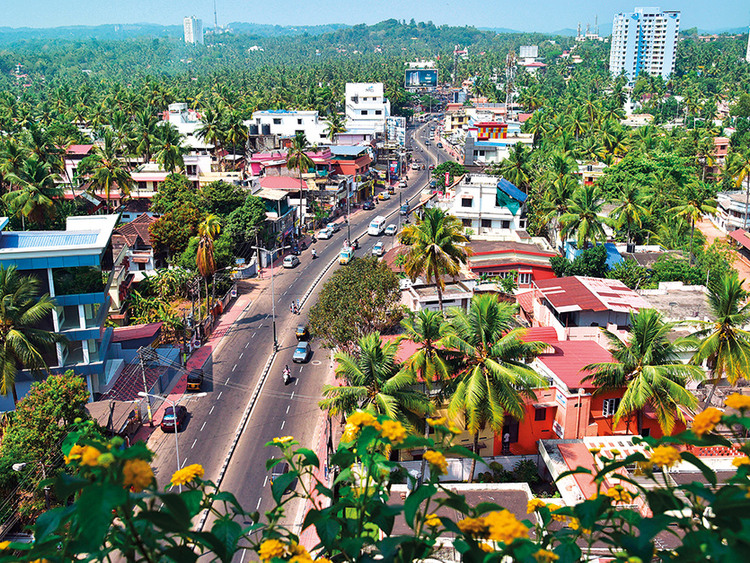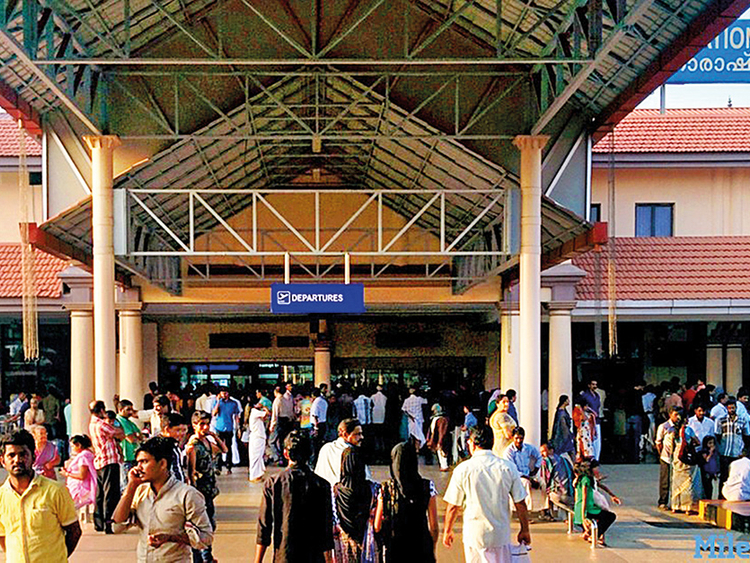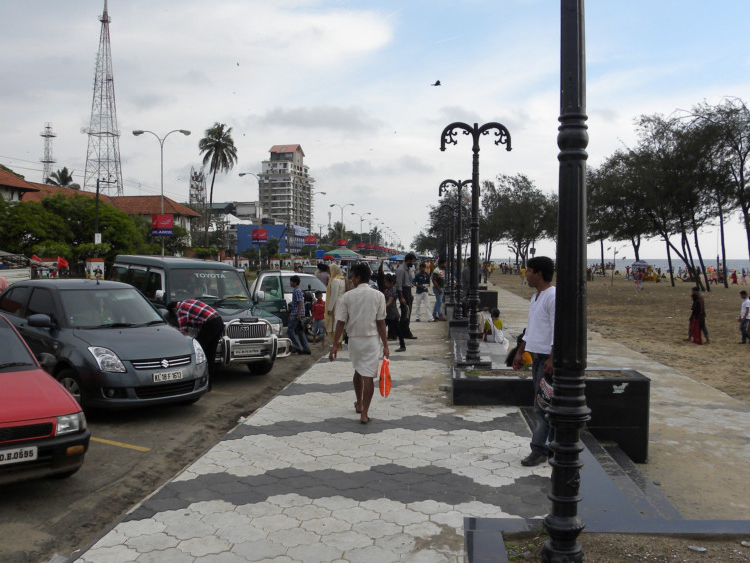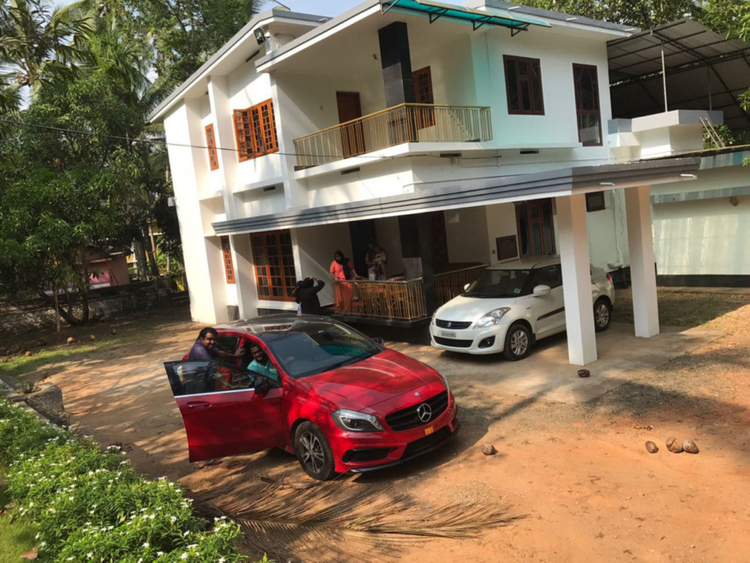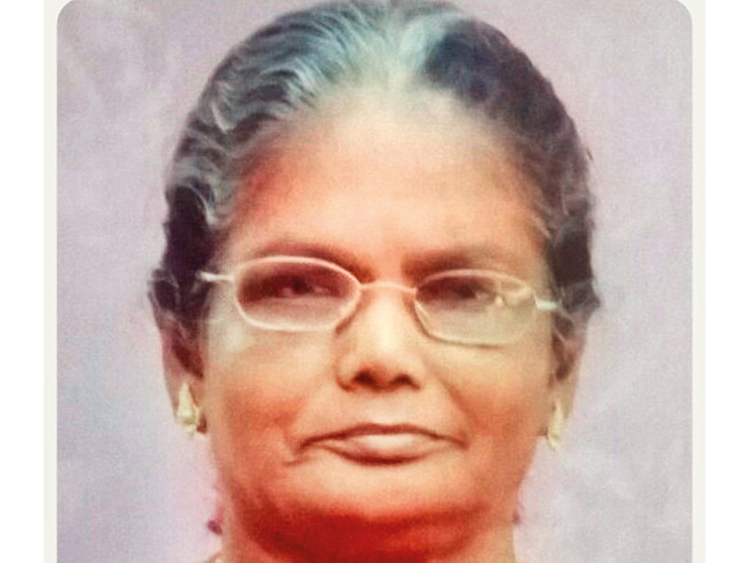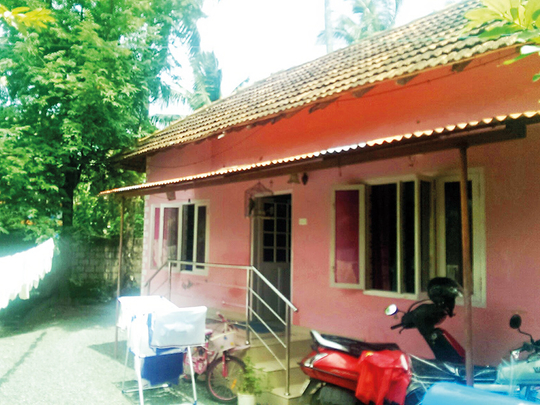
It was in the early 1980s when Teresa took her three children to a bridge over a river in the southern Indian state of Kerala to commit suicide. A poverty-struck widow, Teresa had given up on life after attempting to secure a job as a domestic helper in the booming Gulf nations to which millions of Indians from her state were flocking. She planned to throw her children into the river one-by-one before taking her own life. But after holding up the first child over the bridge, she relented, deciding that she could not build up the courage to do it that day.
It was a few days later that she received the good news. A family in Oman had picked her as a housemaid. Teresa packed her bags, left her children with their grandparents and set off to join the millions of other Keralites moving to the Gulf to begin a multidimensional, interdependent relationship whose implications have gone far beyond the prism of economics it has so often been seen through.
In those days, sleepy Muscat was just a decade into an oil boom that coincided with the ascension of a young sultan who had pledged to bring his country out of the dark ages and into the modern era. Newly exploited oil reserves were to be used to promote education, bring about development and build an infrastructure that would attract millions of migrant workers.
In July 1983, a few years after Teresa’s arrival, an Omani family in the neighbourhood brought home a third child. The mother, answering the government’s call for educators, had recently taken up a job as an English teacher at a public school and Teresa was asked to tap into her network in Kerala to find a nanny for the family. By September 1983, another Keralite woman, Rajina, found a home in Muscat, and from then until I turned 17 and left for university in Canada, Rajina adopted our family as her own.
A mother of three, Rajina had made it clear that her objective was to put her children through school, build her family a home and get her children married before retirement. That took her almost two decades to achieve, giving her and me ample time to grow very close to each other.
As a child, I would often cuddle up with her at night. With one hand on my head and the other clutching her prized blue rosary beads, Rajina would often recite to me the opening chapter of the Quran, the fatiha, in incomprehensible Arabic that I would feel obliged to repeatedly correct. A devout Catholic, she and my mother were in complete harmony with each other’s religion. For my family, her strong faith was a guarantee of her trustworthiness and integrity, and for her, Islam seemed to be an extension of her own beliefs. She and my mother developed a companionship at home, and Rajina became renowned in our extended family for her good cooking.
Given that it took years to get a terrestrial phone line in her village, communication with her family was infrequent and limited. For every milestone in her children’s lives that she was not present for, she would receive photographs in the post months later that she would proudly show to our entire family, eagerly waiting to move back and share her family’s joy. A sad irony is that the incident that allowed her to achieve her objective and retire earlier than expected also compounded the deterioration of her health later in her life. I remember the day clearly. It was a Friday afternoon in April 1996, the day Rajina had donned a colourful sari to spend her day off worshipping at a nearby church followed by a shopping trip with her friends at the bustling Ruwi High Street.
That afternoon, the phone rang and it was a call from one of Muscat’s main hospitals, Al Khoula. There had been an accident. As my parents rushed out of the house, my visibly shaken mother handed me a copy of the Quran open at a chapter she told me to recite. I nodded and complied, shivering as I read the chapter over and over again, refraining from asking too many questions or insisting on accompanying them out of fear of what I would discover.
Rajina had been hit by a car as she was crossing the road outside the church. She spent several weeks in hospital with a back injury and was later compensated handsomely by the motorist’s insurance company. She used the money to expedite the building of a home for her family, the last task on her check list.
She and my mother broke the news of her retirement to me a year before her departure. She had grown tired of working and had achieved all her objectives. Despite being almost illiterate herself, she had managed to give her children an education, a roof over their heads and a bright future. I begrudgingly accepted, being told that she saw no reason to stay any longer if I were to go off to university abroad for the next four years.
Despite having promised to visit Rajina in Kerala for years, it took me almost a decade and a half to finally make the journey after being told that she had fallen ill and that her health was deteriorating — aggravated partly by the injuries she suffered due to the car accident nearly two decades ago. She wanted to see us then more than ever. My mother and I packed our bags and left for my first ever trip to India.
My time in Kerala was an eye-opening experience. Having arrived from Delhi, which often makes headlines as the rape capital of India, I was surprised to see the roles assumed by women in society and the workplace. Women did all kinds of jobs, rode motorcycles and strolled alone in the streets after dark. The 1980s exodus to the Gulf perhaps played a part in strengthening the role of women as the focal point of families. In tens of thousands of Keralite families, women who left for the Middle East at the start of the Gulf boom became the primary wage earners, sending home hard currency and often leaving their husbands to take secondary roles in the house.
But the most tangible impact of the Gulf boom on Kerala was felt by touring Kochi (formerly Cochin) and talking to people on the streets. Over 2,000 kilometres from home, the influence of the Gulf countries could be seen, heard and felt everywhere — from the salesman in a mall who spoke to Middle Eastern tourists in Arabic to the vast development projects funded by Keralite tycoons who made their millions in the region and began pouring the money back home.
“How is Sultan Qaboos’s health now?” our driver enquired upon learning where we were from. He grinned at my surprised reaction, explaining that he had once worked in the southern Omani city of Salalah as a carpenter. Many Keralites we met similarly displayed a sense of affinity upon learning that we were Khaleejis, recalling fond memories of life in the Gulf. In some cases, I gave up trying to speak to people in Hindi, finding that it was easier to get by in Arabic.
Over a decade after she had left, my mother was determined on finding another Rajina, and decided to use our trip to Kerala as an opportunity to head-hunt a maid who would accept a job in Muscat. Given the strengthening of the Indian economy and the number of reported cases of abuse against maids in the Gulf, it had become next to impossible to attract domestic helpers from India to the region.
My mother had tasked Rajina’s younger son, Thomas, with finding her a new domestic helper. Upon learning how much the maid would be expected to earn, Thomas shook his head: “I get a maid three times a week and she makes almost as much”. My mother was shocked. I grinned with amusement.
I sympathised with my mother’s plight, but smirked at the irony that our former maid’s son paid his own maid a salary close to what we were willing to pay. The cycle had finally been broken, and millions of poor Keralite parents who made a generational sacrifice by migrating to the Gulf had successfully lifted their families out of poverty. I was relieved that a new generation of Keralite children would not be orphaned by a mother’s paradoxical need to abandon her own children in order to look after them, but was at the same time selfishly grateful that I had made a lifelong relationship with one woman who had done that.
* * *
I went to Rajina’s house with a heavy heart, dreading the meeting partly due to fear that it would be our last, and partly with the concern that she would have aged to a point that I would not recognise her from my memories. She had indeed aged significantly, having lost all her teeth and a significant amount of mobility, but her memory was as sharp as ever, and her joy at seeing my mother and I brought tears to her eyes and ours.
My biggest fear was that her separation from her children would have robbed them of feelings of kinship to their mother. Rajina had not been there to love and care for her children when she was needed the most. She was not there to witness their graduations and the birth of their children and was instead looking after my family and me. In an attempt to fulfill her children’s material needs, she had wholly neglected their emotional ones.
I was haunted by the thought that her children would punish her for it — even inadvertently, by neglecting their mother in her time of need, and was constantly reminded of my cousin’s former nanny who had been thrown out by her daughter-in-law from the very home she had worked abroad for decades to build. The elderly woman was found roaming the streets alone and was eventually cared for by my extended family until she passed away last year.
It was a relief to see that not only was Rajina well cared for by her family, but that she had grown to become the most important member of the house. She lived with pride and confidence in the bungalow that she worked for years to help build, feeling no apparent sense of burden on her children in her ailing state. She was the master of the house, commanding respect, attention and awe — an ironic contrast to the role she once played in our home as a maid.
But what shocked me the most was that almost 15 years after she left our home, Rajina continued to refer to her two sons, both grown men with children, as Mohammad and Abbas, after my brother and me — sometimes not even bothering to correct herself. To my embarrassment, Mathew and Thomas, respectively, had appeared to have gotten used to it, responding to their mother upon being called by their adopted names. I felt a sense of deep guilt. We hadn’t just taken their mother from them for 17 years. It felt like we had never fully returned her to them.
Throughout Rajina’s illness, her sons kept me updated on her health as if they were answerable to me, perhaps feeling duty-bound to their mother’s love for her adopted family. During that period I developed a sense kinship with her younger son, Thomas, who shared with me his concerns about her health as any brother would.
* * *
Through the years, it has been very awkward for me to explain to others my attachment to Rajina. People often find it difficult to understand why one would want to travel thousands of kilometres to “visit a maid”. In both the Gulf and in India, I was met with everything from puzzled looks to dismissive grins and awkward pats on the back upon saying why I wanted to go to Kerala.
But as I opened up about it more I found that I was no anomaly, discovering that a number of Khaleejis of my generation had developed lifelong relationships with the men and women who helped look after them as children. And many had made trips to India for the sole purpose of visiting them. An Emirati friend even suggested that we coordinate our trips so he could visit his own nanny. Another Emirati friend maintains regular contact with his childhood nanny and calls her his “second mum”. In dealing with the grief of Rajina’s deteriorating health, I found solace in talking to a childhood friend from Oman, now a doctor, who recently lost her family’s decades-long driver to cancer. She, too, avoids talking about her attachment to him “because people make light of it”. Her sister, father and two brothers were all present at his cremation in India.
The relationship that developed between Indian domestic helpers and their host families during the oil boom of the 1980s is an understated one that is vastly different from the employee/employer relationship that has come to define Indian migration to the Gulf. Such relationships have brought together two very different cultures in ways few can quantify.
Despite its breathtaking natural beauty, Kerala had admittedly not been on my list of places to visit. Had it not been for the army of Indian maids that helped raise my generation of Khaleejis, our relationship to Kerala and the rest of India would have been a mere transactional one. The cultural value of these women that became members of our families and fixtures in our households is invaluable.
Rajina passed away after a second stroke on October 31, 2016, about three weeks before I was due to visit her again. She had repeatedly asked for “my son, Abbas” in her last days. I like to think that she was referring to her adopted son. She was laid to rest in her village in Ernakulam, Kerala on November 1. That day, at 7am, I watched from my apartment in Dubai as hundreds of people in her village paid their respects at her burial, thanks to her grandson who streamed the proceedings live from his smartphone.
Abbas Al Lawati is a former Gulf News Middle East Deputy Editor.
All names have been changed with the exception of Rajina’s and the writer’s brother’s.



